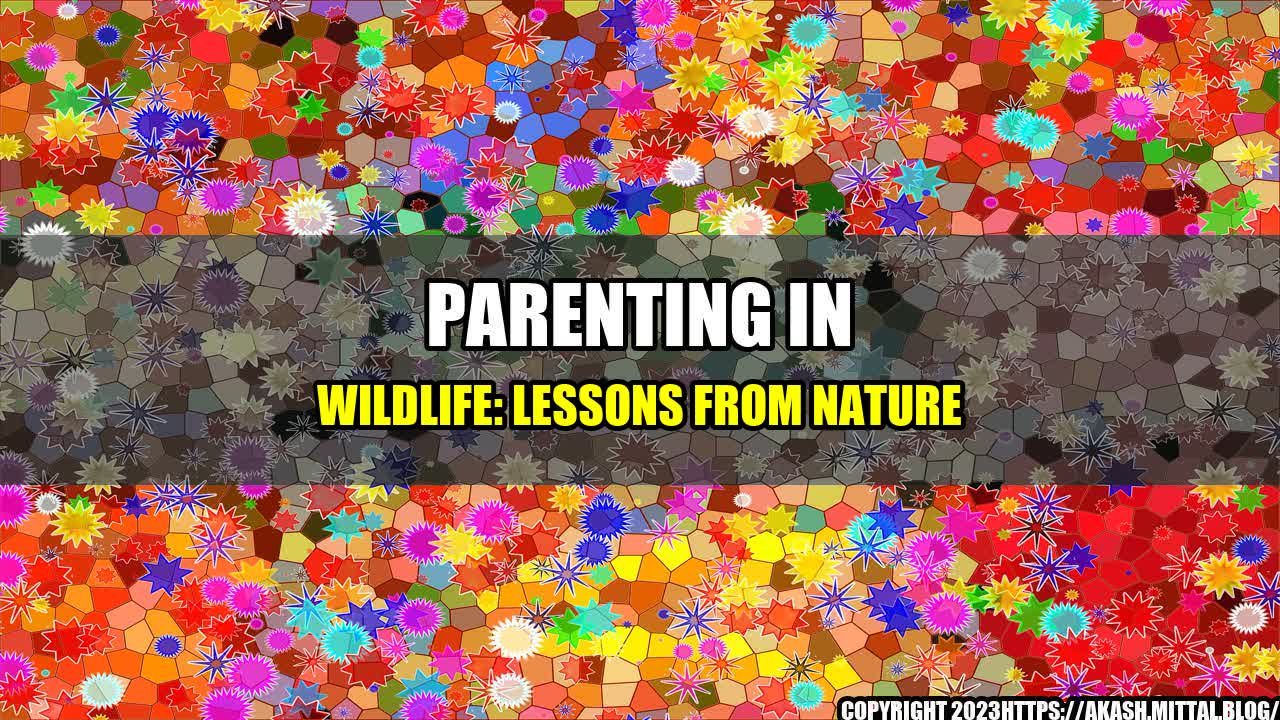Parenting in Wildlife: Lessons from Nature

Parenting isn't easy. It's a full-time job that requires patience, love, and a whole lot of hard work. But did you know that parenting looks different in the animal kingdom? From penguins to lions, every species has its own unique parenting style. As humans, we can learn a lot from these animal parents. Let's explore what we can learn from parenting in the wild.
The Power of Love and Dedication
When it comes to parenting, love and dedication are essential. In the wild, some animals go to great lengths to protect and care for their young. Take penguins, for example. Emperor penguins live in one of the harshest environments on earth - Antarctica. To keep their eggs and chicks warm, the males huddle together in groups of hundreds, taking turns standing on the outer edges of the huddle, facing the fierce winds and blizzards. This is called the "penguin huddle" and helps to keep everyone warm and safe.
Another great example is orangutans. They have the longest childhood of any animal in the world, with young orangutans staying with their mothers for up to eight years. During this time, the mother teaches her young everything they need to know about survival in the wild, including how to climb trees, find food, and avoid predators. This dedication and love from the mother sets up the young orangutan for a successful life in the wild.
- Take time to show your children that you love and care for them.
- Be willing to make sacrifices for your children, even if it's not easy.
- Teach your children everything they need to know to be successful in life.
The Importance of Community and Support
Many animals in the wild rely on their community for support when it comes to raising their young. Take meerkats, for example. These small, desert-dwelling mammals live in groups of up to 50 individuals. When a female meerkat gives birth, she is surrounded by a group of other females who help to care for her young. This support system allows the mother to rest and recover, while also ensuring that the young are well-cared for.
Lions also rely on their community for support. Lionesses take turns caring for the young cubs, allowing for some mothers to hunt and provide food for the group. This community support ensures the survival of the entire pride.
- Don't be afraid to ask for help when you need it.
- Surround yourself with a strong support system of family and friends.
- Be willing to step up and help others when they need it.
The Power of Letting Go
At some point, every parent must face the reality that their little ones will eventually leave the nest and go off on their own. This is true in the animal kingdom as well. However, some animals have a harder time letting go than others.
Take elephants, for example. They have one of the longest gestation periods of any animal - 22 months! Once the calf is born, the mother is incredibly protective and devoted to her young. However, as the calf grows and becomes more independent, the mother must learn to let go and allow her young to explore the world around them.
- Recognize that your children will eventually grow up and leave home.
- Trust that you have taught your children everything they need to know to be successful.
- Be proud of your children and their independence.
Conclusion
Parenting in the wild may look different than human parenting, but there's a lot we can learn from our animal friends. Love and dedication are essential, as is the power of community and support. And when it's time, don't be afraid to let go and allow your children to spread their wings and explore the world around them.
References and Hashtags
- https://www.nationalgeographic.com/animals/parenting-in-the-wild/
- https://www.bbc.co.uk/bitesize/articles/zm9v382
- https://www.pbs.org/wnet/nature/lessons-wildlife-parenting/19160/
Category: Parenting
Hashtags: #parenting #wildlife #nature #animals
SEO Keywords: parenting in wildlife, parenting lessons from nature, love and dedication in parenting, community support in parenting, letting go in parenting
Curated by Team Akash.Mittal.Blog
Share on Twitter Share on LinkedIn